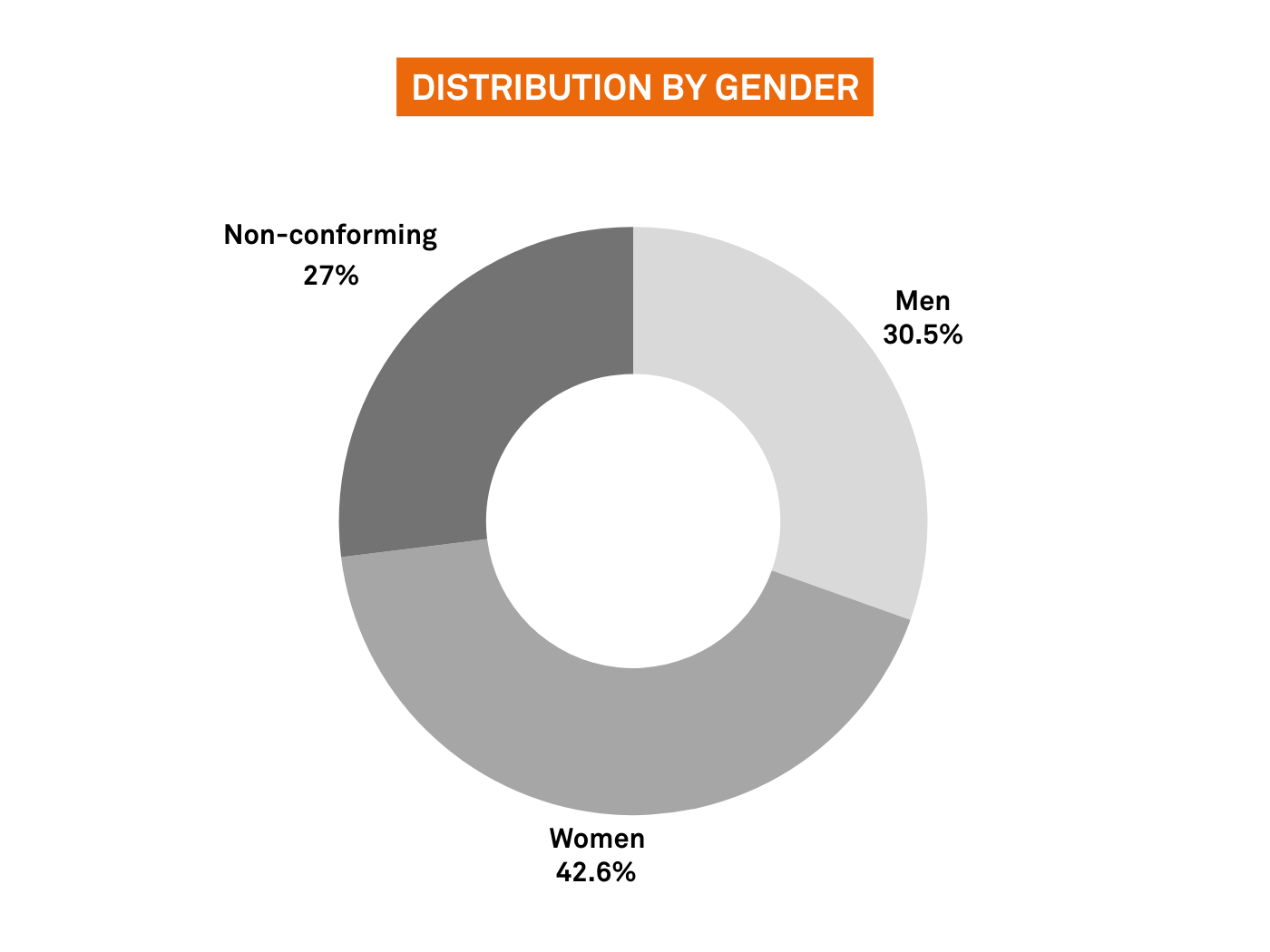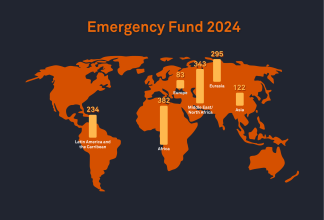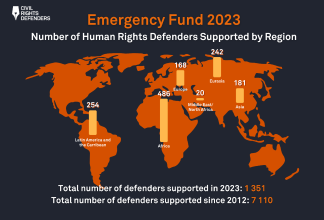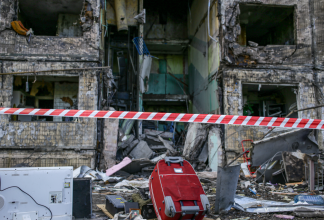“Thanks to support from Civil Rights Defenders I am safe here in Uganda”
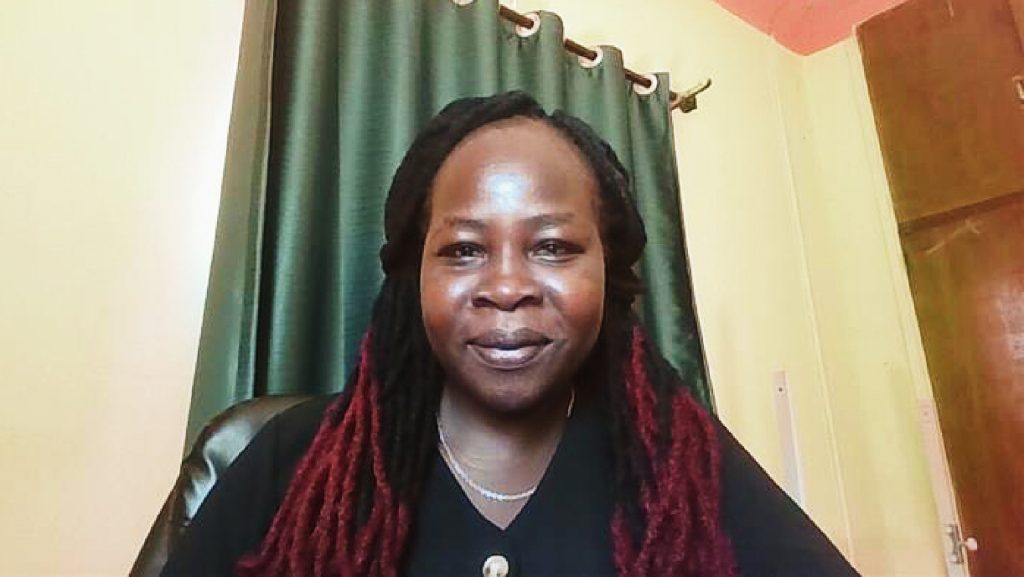
Helping a Woman Human Rights Defender Find Safety During Sudan’s Civil War
Tayseer Elbedawi helped found and was a board member of the Human Rights and Development Organisation (HUDO), a Sudanese NGO dedicated to the promotion and protection of human rights, peace building and development. She actively took part in the organisations’ work on human rights monitoring, documenting and reporting on human rights violations aimed at ensuring that human rights standards are met in Sudan.
After the civil war between Sudanese Army Forces (SAF) and Rapid Support Forces (RSF) erupted in April 2023, Tayseer was forced to flee from Sudan together with her two children, after RSF vehicles and troops made presence in her neighbourhood, exposing her work, her and her family to more danger. Through the support of the Emergency Fund and after a perilous journey, they managed to get safely to Uganda at the end of last year. Finding a source of income has been a challenge for Tayseer, but she stayed committed and has taken different trainings to improve her skills and increase her chances of securing a job. Aided by our support to stabilise her livelihood and secure education to her children, Tayseer has recently taken a position in an organisation that works to empower refugee women and girls.
“Thanks to Civil Rights Defenders support I am safe here in Uganda without facing any threats or risks related to me as a person or due to my professional activities. I am able to move freely, train women human rights defenders, provide consultations and support human right defenders at any level within my organisation or other related organisations.“
– Tayseer Elbedawi, Sudanese human rights defender
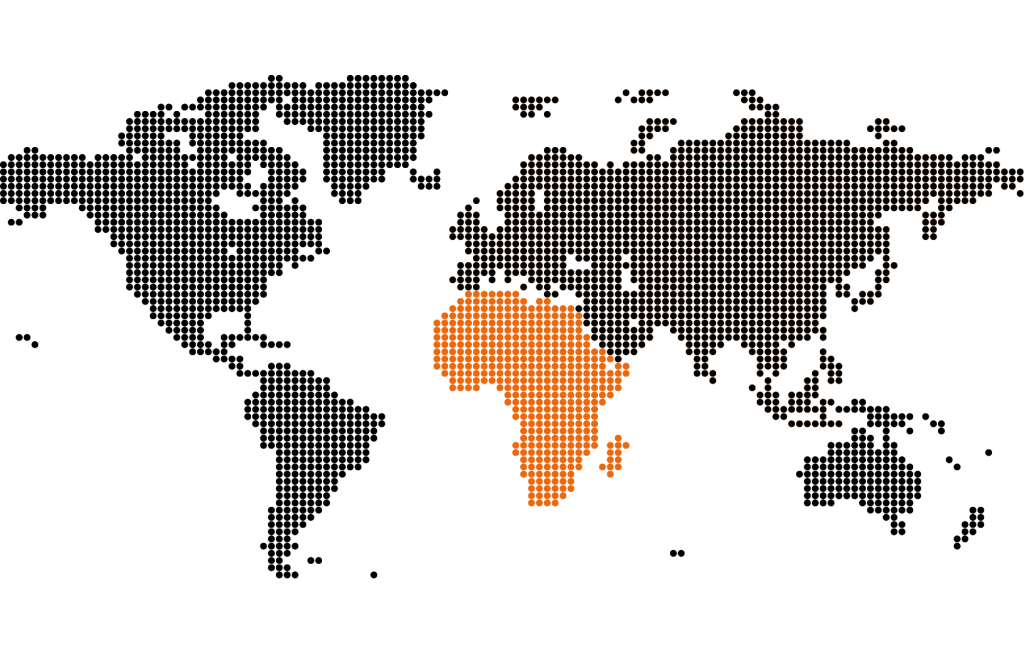
Emergency Fund Trends in Africa in 2023
Defending human rights is a dangerous job in several parts of the world. When a threatening situation escalates, Civil Rights Defenders’ Emergency Fund provides rapid assistance to improve the defender’s security as quickly as possible. During 2023, the Emergency Fund provided support to 486 human rights defenders and members of their families in 12 different countries in Africa, through a total of 52 grants.
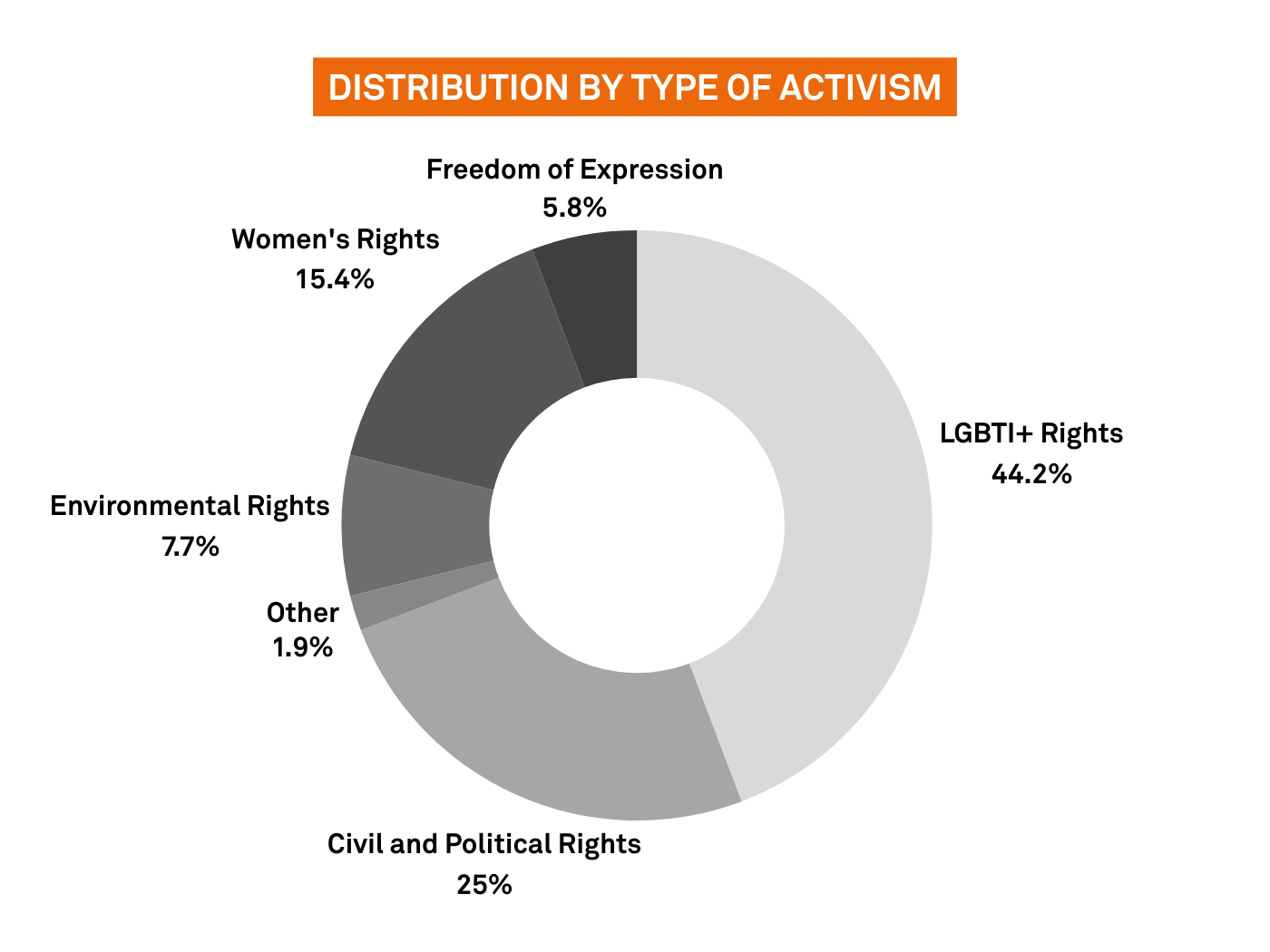
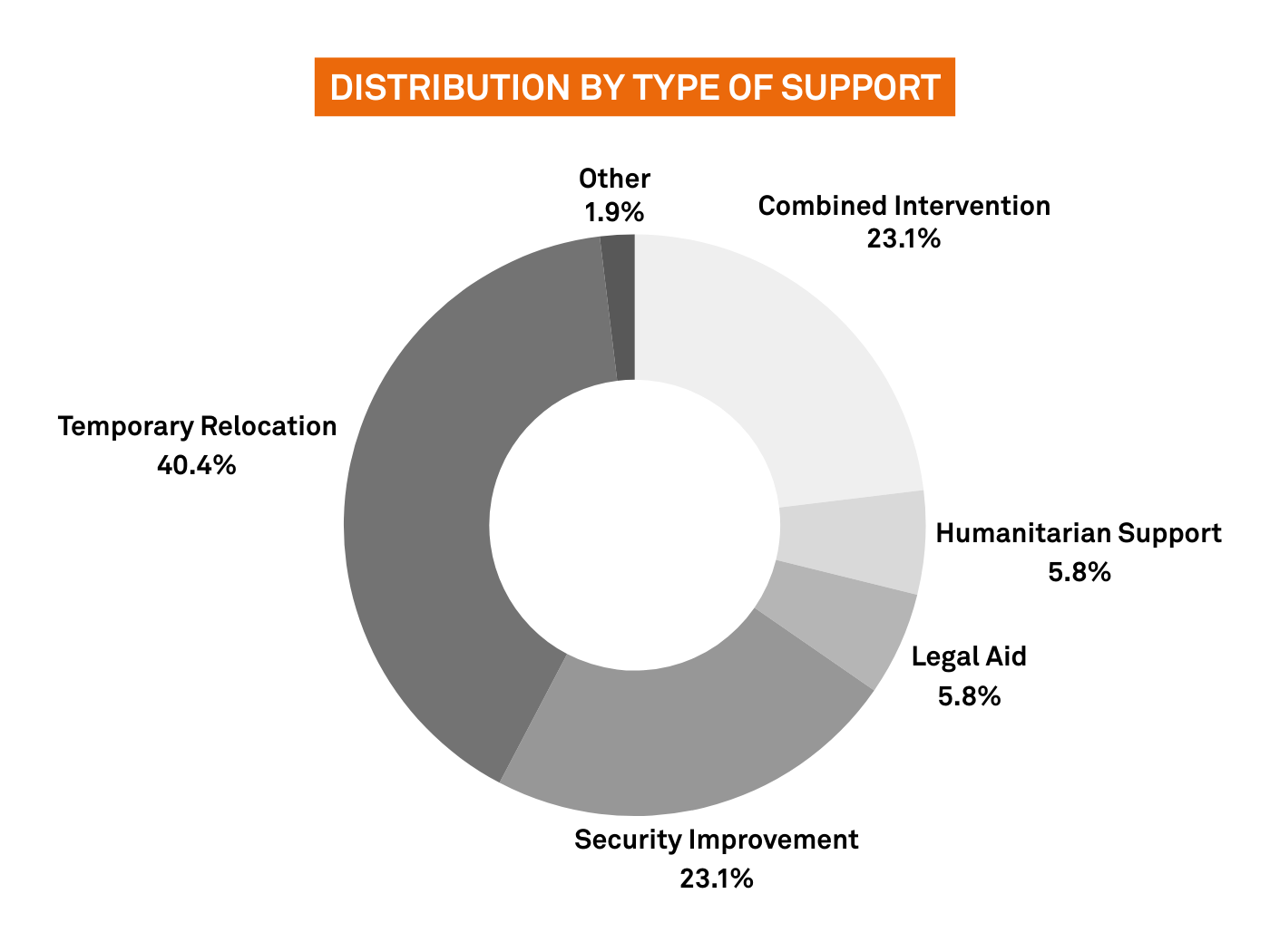
- Support for Sudanese Human Rights Defenders in a Conflict Zone: One year after the outbreak of the civil war in Sudan in April 2023, the situation remains dire, with widespread displacement, massive destruction of property, communications shutdown, and attacks on civilians—including ethnic targeting—which have resulted in a large amount of deaths. Human rights defenders have been specifically targeted facing serious risks, including kidnapping, arbitrary detention, and torture. Women human rights defenders endure additional dangers like sexual violence, harassment, and discrimination. Despite these risks, human rights defenders continue their vital work, documenting human rights violations, and supporting victims. Our Emergency Fund has been crucial in providing immediate support to Sudanese human rights defenders facing threats, enabling them to protect themselves, and sustain their work by acknowledging their sacrifices and bolstering their resilience in defending human rights despite the conflict.
- A Rise in Threats to the LGBTI+ Community: In 2023, there was a notable increase in emergency grant requests coming from the LGBTI+ community in Africa, who are facing increasing challenges due to anti-LGBTI+ legislation and societal stigma. LGBTI+ human rights defenders face harassment, blackmail, arrests, kidnapping, torture, assault, evictions, job loss, and unjust arrests. Recognising the differentiated aspects of their identity and threats faced, we tailored grants to individual needs, providing temporary relocation, security measures, transportation, medical aid, psychosocial support, and rest and respite to enhance overall security for human rights defenders and organisations, facilitating advocacy for equality and safer spaces for LGBTI+ individuals continent-wide.
- Protection of journalists and freedom of speech in Ethiopia: The war that started in Tigray in November 2020 and spilled over to the neighbouring regions of Amhara and Afar, has had severe consequences for civilians, human rights defenders, and the civic space in Ethiopia. Among the most at-risk groups are journalists, who have been affected by a media blackout and the destruction of communications infrastructure. The warring parties targeted journalists to prevent them from reporting on the grave violations of human rights as a deliberate attempt to control the war narrative. Several journalists have been compelled to abandon their homes, while others have faced threats, coercion, and unlawful arrests, leading to a surge in requests for emergency grants. Through our grants we have been able to provide a lifeline to journalists at the forefront of reporting, so their critical voices cannot be silenced.
